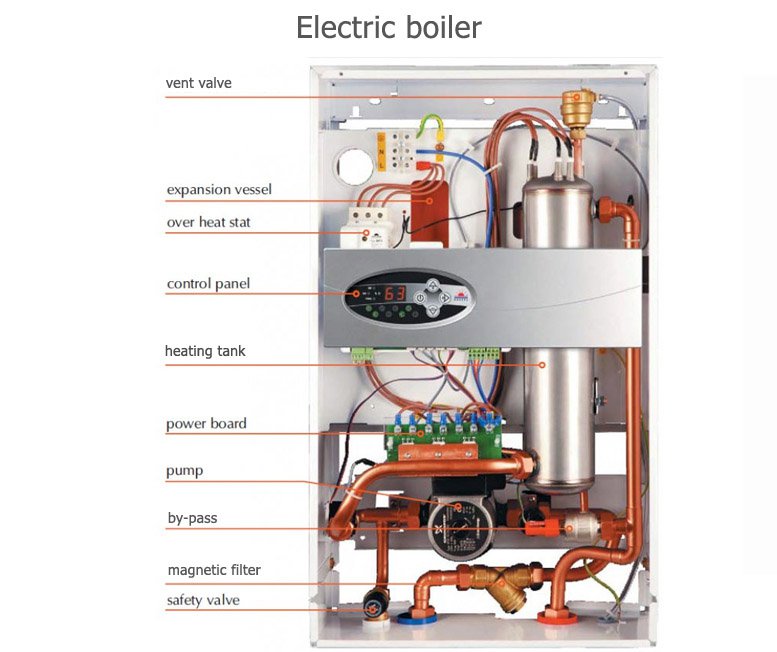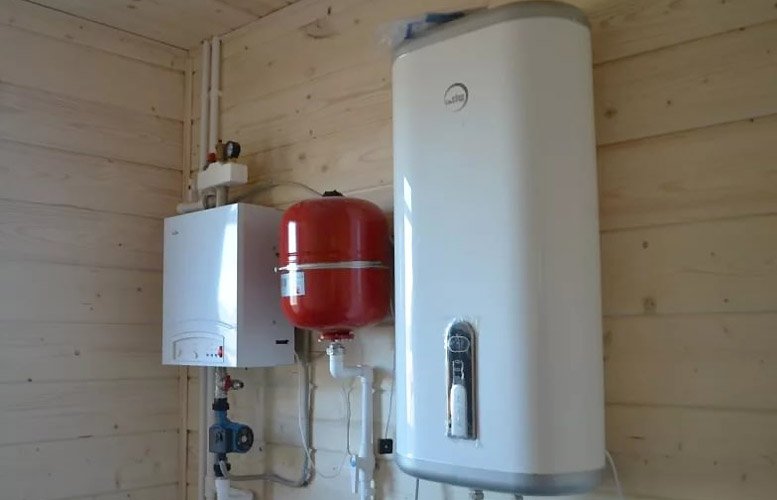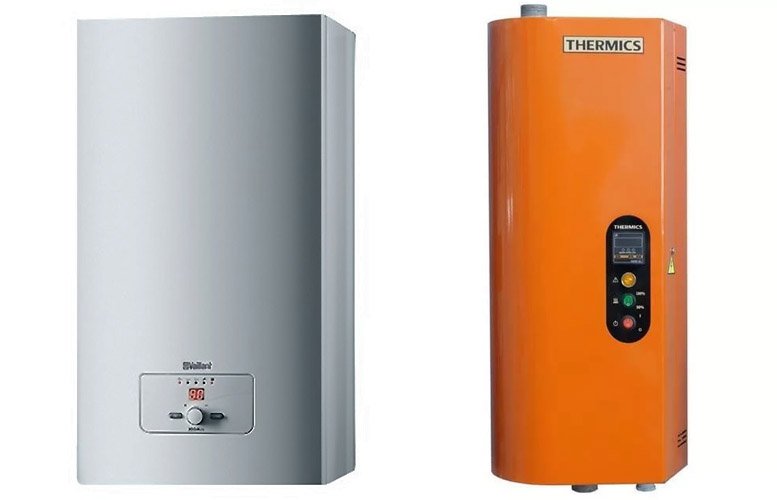An electric boiler will operate wherever there are power lines. It does not require purchasing or storage of fuel or building a separate facility. All you need to do is connect to a power line and arrange piping.
Thanks to compact size, an electric device will fit in a very small room, and its modern design will complement any interior.
Of all potential competitors, electric boilers are the most affordable.
They do not use flame and therefore boast much higher fire safety. On the other hand, they do have some safety requirements.
Electric heating is apriori extremely expensive, and it is only chosen when there are no other alternatives, or in case of emergency. You must be ready to face extortionate electricity bills. If there is a gas line in your area, you’d better buy a gas-fired burner. Installing electric heating systems makes sense only if there are no gas lines around. Also, you can rely on electricity if you are often absent from home and do not have an opportunity to look after and run a solid-fuel boiler.

The principle of work is very simple: heat transfer medium is supplied to a flash tank. There it is heated by electricity and sent to circulate heater coils and pipes.
Because all heaters actually convert electricity to heat, the only thing that makes a difference is how they do it. There are the following types of electric heating boilers available:
- Classic devices featuring tubular heating elements that heat up the heat transfer medium;
- Electrode water heaters
- Induction boilers
Here these appliance types are presented in ascending order of costs.

Electric boilers are often used to supplement solid-fuel heating units. The goal is to keep a room warm during night hours without owners’ having to get up and put firewood in the furnace. Besides, nighttime electricity tariffs are the lowest. The unit will work intermittently for several hours per day.
Pros:
Electric heating boilers boast high efficiency (sometimes reaching 99%), ease of use, affordability, and noiseless work. Safety and eco-friendliness are undeniable advantages of such heating equipment.
Cons:
You have to remember about rising electricity bills and the possibility of cutoffs and voltage jumps.
